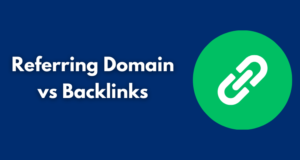Startups these days are much more than simple garage businesses.’ They are rapidly growing entities that can serve as innovation hubs. But with every new startup comes a new, bigger, and often unappreciated challenge – cybersecurity.
Online privacy and security are as important as raising capital and gaining customer trust. One wrong move can destroy a business in seconds. More successful startups focus on cybersecurity as a business function, not just protection. Let’s look closer at these successful businesses and see how they function.
Table of Contents
Toggle1. Security from Day One Not an afterthought.

Even the most rapidly scaling startups in 2026 already understand that customer trust and protecting sensitive information are just as crucial as company reputation. Unlike in the past, when businesses treated security as an afterthought, startups today understand that data integrity is as valuable as intellectual property.
Startup founders no longer struggle with confusion today. During product design and development, security features are included, rather than trying to add them afterwards. Whether it’s a fintech app or a healthtech platform, the design process integrates cybersecurity as a core component.
2. Zero Trust Architecture is the New Standard
The phrase “trust but verify” has now changed to “verify everything.” Startups adopting Zero Trust Architecture (ZTA) are prospering because they acknowledge that internal risks might be just as harmful as outside ones.
Startups are sidestepping some of the challenges older perimeter-based systems faced by avoiding blanket security policies, validating user identity at every single action, and limiting user access to critical systems and data. In today’s remote-first world, this approach is more than innovative; it is vital. What Is Zero Trust Architecture?
3. Employee Education Is Continuous

As of 2025, many issues persist regarding phishing scams, poorly managed passwords, and carelessly handled logins. The best new businesses place their focus on constant cybersecurity training for all employees, and not only for the IT departments.
Proactive reminders and real-life, on-the-spot training sessions can be simulated and made fun to boost employee engagement. Not only do employees understand the concepts, but they can also apply them effectively.
4. They choose a scalable, secure infrastructure
Fast-growing startups require increasingly sophisticated and security-compliant infrastructure. Companies that are cloud-only use secure-by-design platforms, only choosing vendors with uncompromised security standards.
Startups are making use of containerized environments using Kubernetes or with encrypted API gateways. Startups are better off choosing secure infrastructure early on.
5. Startups should adopt tools that empower their operations rather than complicate them

Cybersecurity tools should assist in getting work done, rather than getting in the way. Focused on solving user-friendly, flexible, and efficient security solution issues, many startups are excelling as the field of cybersecurity is booming.
Take remote teams as an example. From the coffee shops to co-working spaces and home offices, employees are logging in everywhere, so secure internet access becomes essential. Many teams are making downloading a VPN a part of the onboarding to ensure the employees privacy while still keeping the sensitive data secure.
Startups can now protect their data from interception by highly public Wi-Fi networks, geo-restrictions, and VPN sniffing while continuing to innovate with modern VPN technology.
6. Regulatory Compliance Is Built into the Culture
With regulations like GDPR and CCPA tightening up, many new startups are looking at compliance differently as an asset, rather than a hurdle.
The most successful companies I know integrate compliance as a part of their products and operations right from the start. This earns the trust of investors and users and builds up significant confidence, which is great for business.
7. Incident Response Plans Are in Place Even When They’re Small
Even a small company can have a solid response plan in place. The best growing startups in 2026 have streamlined and efficient incident response plans, even with a 10-person team.
Defined protocols, streamlined communication systems, and delegation of specific duties can greatly minimize the impact of an attack. It’s not about being flawless; it’s about being equipped.
Final Thoughts: Security Is the New Competitive Advantage
For today’s most innovative startups, cybersecurity differentiates them instead of being an afterthought.
The right cybersecurity approaches, systems, and cultural practices will not only safeguard a company’s assets but will also build a firm’s agile, trustworthy, and adaptable infrastructure. Startups are already building these businesses.
Growing at a quicker pace and with greater accuracy, agile and secure startups are the ones who leverage the right digital security. Startups are implementing secure systems, providing proper team training, and practicing basic digital hygiene, such as using a VPN.










